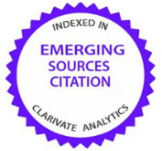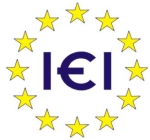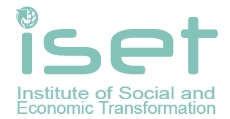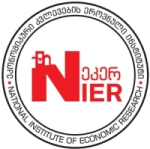Publication Ethics and Malpractice Statement
Ethics of publications and prevention of unconscientious practice of publications
This journal subscribes to the principles of the Committee on Publication Ethics.
In addition it is expected of authors, reviewers and editors that they follow the best-practice guidelines on ethical behaviour contained therein.
Authorship should be restricted to individuals who have contributed significantly to the conception, design, execution, or interpretation of the reported study. Encouragement is given to transparency in communicating the authors' contributions.
Plagiarism: The authors are responsible for ensuring the complete originality of this work. If authors have incorporated the work or words of others, proper citations or quotations must be employed.
Data Access and Retention: Authors should be ready to grant public access to any raw data that they may be asked to submit for editorial evaluation.
Concurrent Publication: The authors are advised to not disseminate similar research in multiple journals or primary publications.
Acknowledgement of Sources: Appropriate acknowledgment of the work of others must be consistently provided.
Conflicts of Interest: All submissions must disclose relationships that may be perceived as constituting potential conflicts of interest.
Fundamental Errors: Authors are obligated to promptly inform the journal editor or publisher upon discovering significant errors or inaccuracies in their published work and to cooperate with the editor in the process of retracting or correcting the paper.
Reporting Standards: Authors reporting on original research should offer an accurate account of the work conducted, accompanied by an objective discussion of its significance.
AI Writing Tools: Authors must clearly define authorship criteria and ensure that AI-generated content is appropriately assigned to responsible individuals or teams. The authors must disclose the extent of AI tool involvement in the creation of the manuscript by identifying the tasks performed by the AI.
The Journal regularly monitors advances in artificial intelligence technology and updates its ethical standards accordingly.
Duties of Editors
Publication decisions. The editorial board is responsible for deciding which of the articles submitted to the journal should be published. The editorial board will be guided by the policies of the journal and constrained by legal requirements related to libel, copyright infringement and plagiarism. Members of the editorial board will confer and refer to reviewers recommendations in making this decision.
Equality. An editor, member of the editorial board or reviewer must evaluate manuscripts for their intellectual content without regard to race, gender, political philosophy, sexual orientation, ethnic origin, citizenship, or religious belief of the authors. Decisions to edit and publish are not determined by the policies of governments or any other agencies outside of the journal itself. The Editor-in-Chief has full authority over the entire editorial content of the journal and the timing of publication of that content.
Confidentiality. The edition board guarantees confidentiality, that is, it undertakes not to disclose information about the given manuscript to anyone other than the respective authors, reviewers, other editorial consultants and, if necessary, the publisher.
Disclosure and conflicts of interest. Unpublished materials disclosed in a submitted manuscript must not be used in an editor's, reviewer’s or any other reader’s own research without the express written consent of the author. Privileged information or ideas obtained by editors as a result of handling the manuscript will be kept confidential and not used for their personal advantage. Editors will recuse themselves from considering manuscripts in which they have conflicts of interest resulting from competitive, collaborative, or other relationships/connections with any of the authors, companies or institutions connected to the papers; instead, they will ask another member of the editorial board to handle the manuscript.
Duties of Reviewers
Contribution to Editorial Decisions. Reviewers assist the editorial board in making editorial decisions and through the editorial communications during the open review process with the author may also assist the author in improving the paper.
Qualification of Reviewers. Any selected referee who feels unqualified to review the research reported in a manuscript or knows that its prompt review will be impossible should notify the editor and excuse himself from the review process. The editorial board is responsible for ensuring the promptness of responses in the open review process. Reviews should be conducted objectively and observations formulated clearly with supporting arguments so that authors can use them for improving the manuscript. Personal criticism of the authors is inappropriate.
Confidentiality. Any manuscripts received for review in the open review process are subjected to the criteria of enhancing their rationality through the mutual rational controls of critical discussion. All peer reviewers must abide by the COPE’s Ethical Guidelines for Peer Reviewers , including respecting the confidentiality of peer review and not revealing any details of a manuscript or communications related to it, during or after the peer review process, beyond those that are released by the journal.
Establishing Standards of Objectivity through Critical Discussion. Reviews should be conducted objectively. Reviewers should express their views clearly with supporting arguments in the spirit of enhancing the quality of the paper through the mutual rational controls of critical discussion.
Acknowledgement of Sources. References to the ideas of others should be accompanied by the relevant citation. Any statement that is an observation, derivation or argument that has been reported in previous publications should be accompanied by the relevant citation. A reviewer should also call to the editor's attention any substantial similarity or overlap between the manuscript under consideration and any other published paper of which they have personal knowledge.
Disclosure and Conflict of Interest. Information or ideas obtained through peer review must only be used with the explicit agreement of the participants in the peer review. Any invited referee who has conflicts of interest resulting from competitive, collaborative, or other relationships or connections with any of the authors, companies or institutions connected to the manuscript and the work described therein should immediately notify the Editors to declare their conflicts of interest and decline the invitation to review so that alternative reviewers can be contacted.
Duties of Authors
Reporting standards. Authors of reports of original research should present an accurate account of the work performed as well as an objective discussion of its significance. Underlying data should be represented accurately in the paper.
Originality and Plagiarism. The Editorial Board of Journal recognize different cultural beliefs about the acceptability of quoting the ideas of others as if they were one’s own, and authors should ensure that they have written entirely original works, and if the authors have used the work and/or words of others that this has been appropriately cited or quoted.
Authorship of the Paper. Authorship should be limited to those who have made a significant contribution to the conception, design, execution, or interpretation of the reported study. All persons who made substantial contributions to the work reported in the manuscript (such as technical help, writing and editing assistance, general support) but who do not meet the criteria for authorship must not be listed as an author, but should be acknowledged in the "Acknowledgements" section after their written permission to be named as been obtained. The corresponding author should ensure that all appropriate coauthors (according to the above definition) and no inappropriate coauthors are included in the author list and verify that all coauthors have seen and approved the final version of the manuscript and agreed to its submission for publication.
Fundamental errors in published works. When an author or reader discovers a significant error or inaccuracy in the published work, it is the author’s obligation to promptly notify the journal editor and work with the editor to retract or correct the paper. If the Editors or publisher learns from a third party that a published work contains a significant error or inaccuracy, then it is the authors’ obligation to promptly correct or retract the paper or provide evidence to the journal Editors of the correctness of the paper.





















